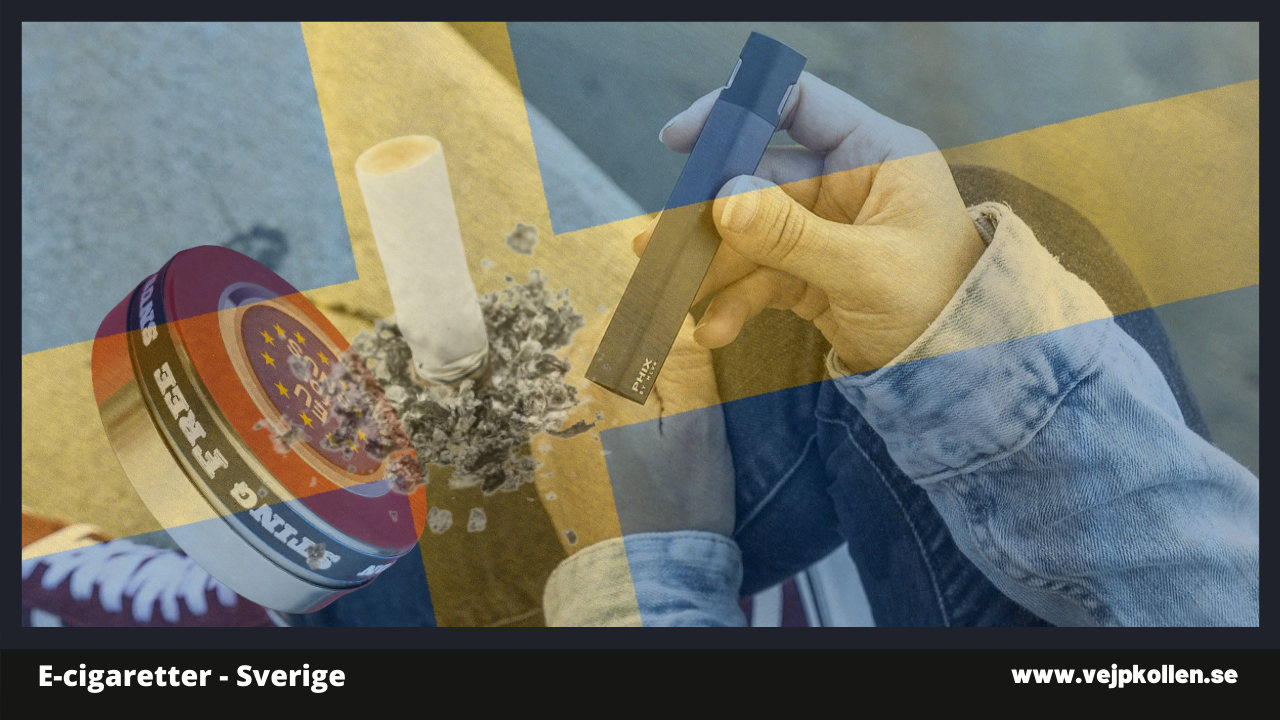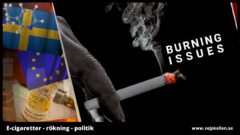Smoking, but also alternative nicotine products, are associated with problems in Swedish municipalities. At least that's the opinion of a majority of Sweden's municipal politicians, according to a survey by Demoskop. At the same time, the vast majority see cigarette smoking as the biggest health hazard, while only one (1) per cent think that e-cigarettes and nicotine pouches pose the greatest health risks.
80 per cent of Sweden's municipal politicians think that smoking is a problem in their respective municipalities. 70 per cent think that smoke-free nicotine products, such as snus, nicotine pouches and e-cigarettes, are also a problem. 22 per cent and 16 per cent respectively also think that smoking and nicotine products are a serious problem. Public health impacts and littering are key factors, according to politicians. At the same time, local politicians see greater risks with cigarettes than with smokeless nicotine products.
Debate on tougher measures
The issue of smoking and alternative nicotine products has been on the agenda in recent years, at least at national level. Since the government proposed tougher measures for new nicotine products in general and also a ban on flavoured e-cigarettes, interest in the issue has increased in Parliament. But how much interest is there in smoking, nicotine products and their harmful effects among local politicians? Phillip Morris International (PMI) wanted to find out.
"A rather serious problem"
It turned out that there is a relatively high level of interest, at least when Demoskop, on behalf of PMI, asked all municipal politicians in Sweden in the spring. 82 per cent replied that they perceive smoking as a problem, albeit not a very big one. 22 per cent, on the other hand, replied that smoking is a serious or fairly serious problem.
Interest was highest in the big cities, but also in some smaller municipalities such as Gotland, where 56 per cent of politicians thought smoking was a serious or fairly serious problem.
Few believe e-cigs are a major health hazard
Demoskop also asked what public health consequences politicians believe different nicotine products have. The most negative consequences were attributed to cigarettes (70 per cent), while only one (1) per cent of politicians thought that e-cigarettes and nicotine pouches had the most negative consequences. Four per cent considered snus to be the most negative for public health.
The survey also showed that 20% of politicians consider nicotine in cigarettes to be the most dangerous. The same number, 20 per cent, considered tar to be the most harmful.
Want manufacturers to inform
According to the politicians, it is important to have independent information on the harmful effects of different nicotine products. At the same time, almost half felt that it is up to manufacturers to provide information on the health risks of their products. The same number felt that it is the responsibility of government authorities and healthcare organisations to provide information on the various health risks.
The survey is part of Demoskop's annual politicians' panel, where local politicians answer a number of key questions, such as attitudes to their own municipality, the most important priorities, the need for investment in different areas, perceptions of tax-funded activities in the private versus public sector, views on freedom of choice and private welfare entrepreneurship. This year's report is based on 3481 interviews and was presented during Almedalen Week 2022.




